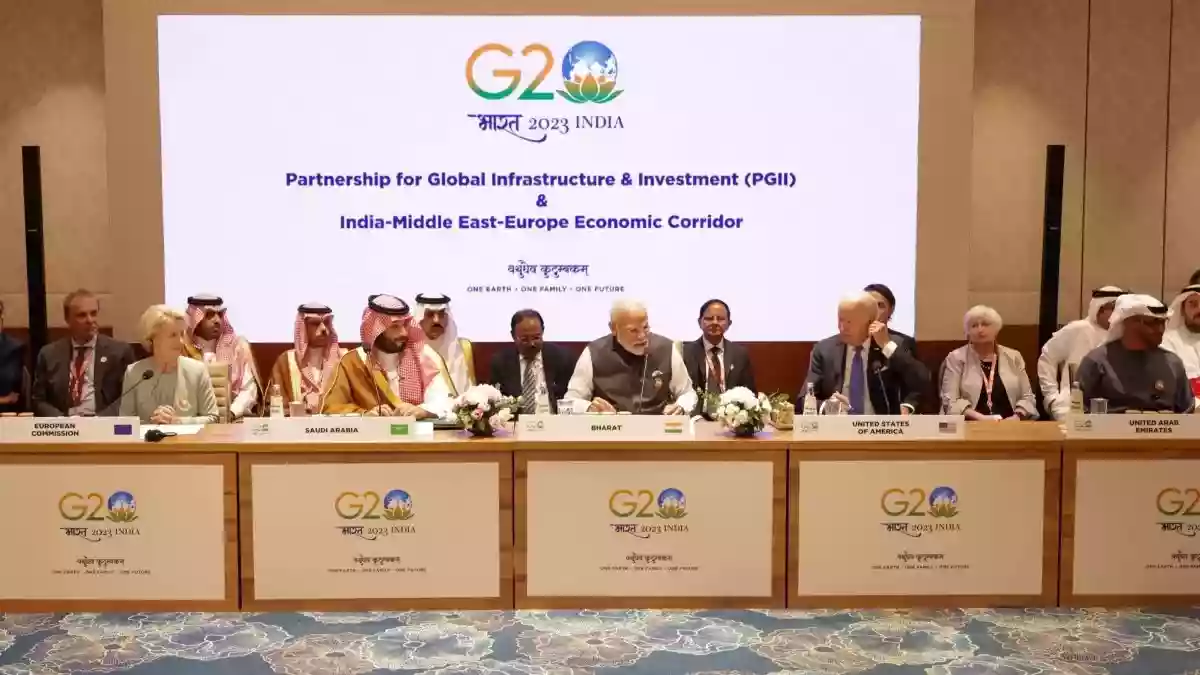CM Mamata holds Centre responsible for Kashmir tourist safety in meeting with Omar Abdullah | Watch
.gif)
.gif)

In a historic announcement on Saturday, leaders from the United States, India, Saudi Arabia, the United Arab Emirates, France, Germany, Italy, and the European Union unveiled the ambitious India-Middle East-Europe Economic Corridor (IMEC) during the G20 summit in New Delhi. Israeli Prime Minister Benjamin Netanyahu hailed this project as the "largest cooperation project in our history" and predicted that it would reshape the Middle East, Israel, and the entire world. This economic corridor is seen by many as a potential alternative to China's Belt and Road Initiative.
US President Joe Biden emphasized the global significance of IMEC, labeling it a "big deal" and a "game-changing investment" for the United States. Prime Minister Narendra Modi took to social media, expressing hope that this corridor would stand as a testament to human endeavor and unity across continents as history unfolds.
Charting a journey of shared aspirations and dreams, the India-Middle East-Europe Economic Corridor promises to be a beacon of cooperation, innovation, and shared progress. As history unfolds, may this corridor be a testament to human endeavour and unity across continents. pic.twitter.com/vYBNo2oa5W
— Narendra Modi (@narendramodi) September 9, 2023
Driven by key participants such as the US, UAE, Saudi Arabia, and India, the newly proposed spice route has the potential not only to challenge the Belt and Road Initiative but also to potentially surpass it in the future, becoming the backbone of global trade built on new global supply chains. This development reflects the commitment of the Biden administration to not only the Middle East corridor under the Partnership for Global Infrastructure and Investment initiative but also to supporting the global biofuels alliance. In essence, the spice route is envisioned as the new Silk Road of international trade.